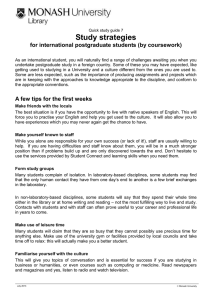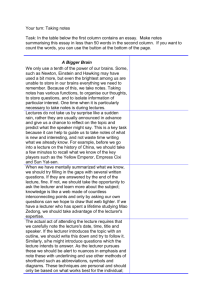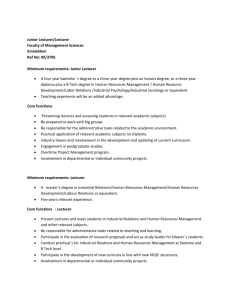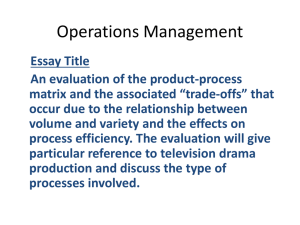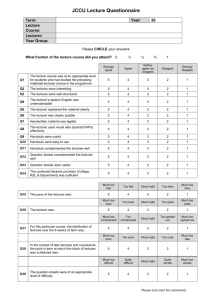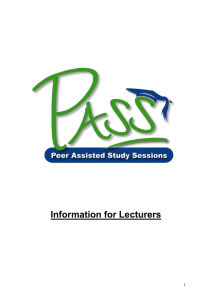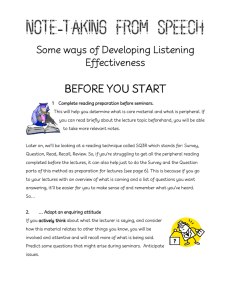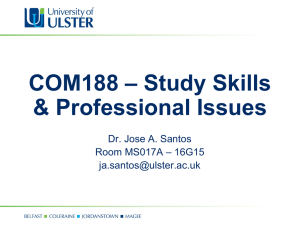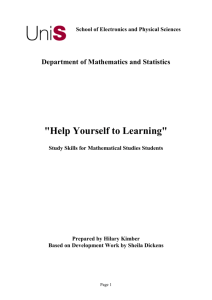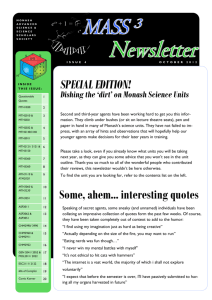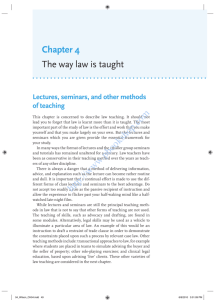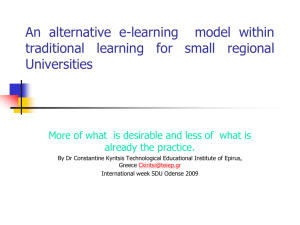PDF Practical lecture tips
advertisement
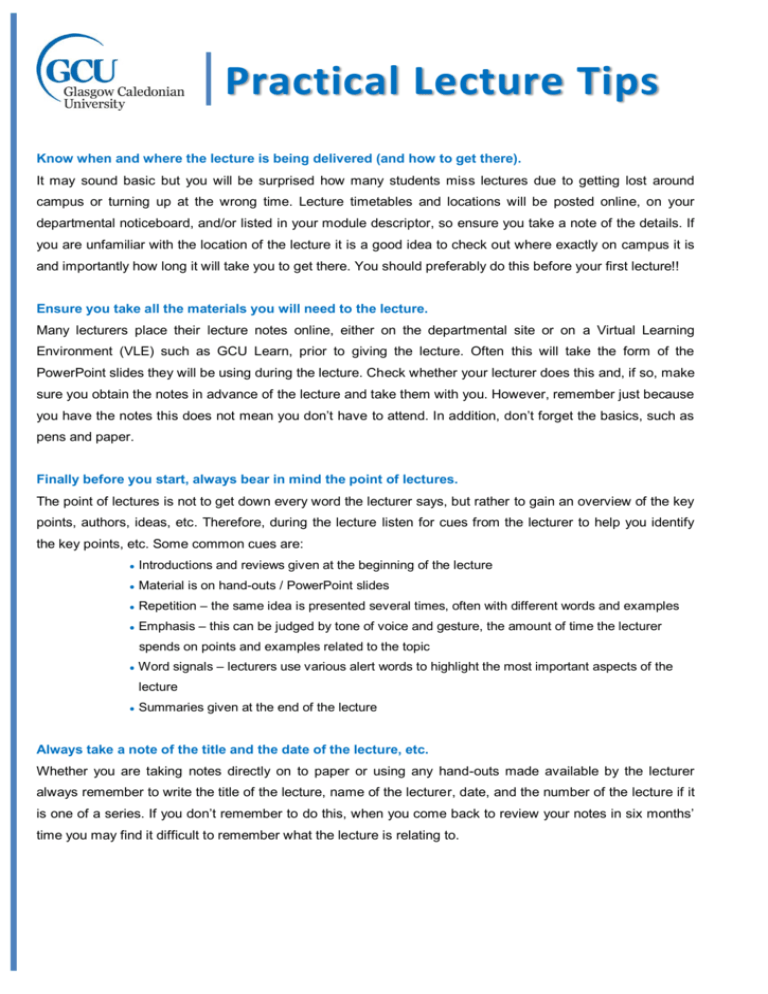
Practical Lecture Tips Know when and where the lecture is being delivered (and how to get there). It may sound basic but you will be surprised how many students miss lectures due to getting lost around campus or turning up at the wrong time. Lecture timetables and locations will be posted online, on your departmental noticeboard, and/or listed in your module descriptor, so ensure you take a note of the details. If you are unfamiliar with the location of the lecture it is a good idea to check out where exactly on campus it is and importantly how long it will take you to get there. You should preferably do this before your first lecture!! Ensure you take all the materials you will need to the lecture. Many lecturers place their lecture notes online, either on the departmental site or on a Virtual Learning Environment (VLE) such as GCU Learn, prior to giving the lecture. Often this will take the form of the PowerPoint slides they will be using during the lecture. Check whether your lecturer does this and, if so, make sure you obtain the notes in advance of the lecture and take them with you. However, remember just because you have the notes this does not mean you don’t have to attend. In addition, don’t forget the basics, such as pens and paper. Finally before you start, always bear in mind the point of lectures. The point of lectures is not to get down every word the lecturer says, but rather to gain an overview of the key points, authors, ideas, etc. Therefore, during the lecture listen for cues from the lecturer to help you identify the key points, etc. Some common cues are: ● Introductions and reviews given at the beginning of the lecture ● Material is on hand-outs / PowerPoint slides ● Repetition – the same idea is presented several times, often with different words and examples ● Emphasis – this can be judged by tone of voice and gesture, the amount of time the lecturer spends on points and examples related to the topic ● Word signals – lecturers use various alert words to highlight the most important aspects of the lecture ● Summaries given at the end of the lecture Always take a note of the title and the date of the lecture, etc. Whether you are taking notes directly on to paper or using any hand-outs made available by the lecturer always remember to write the title of the lecture, name of the lecturer, date, and the number of the lecture if it is one of a series. If you don’t remember to do this, when you come back to review your notes in six months’ time you may find it difficult to remember what the lecture is relating to. Make good use of abbreviations, short cuts and mind maps. When they first start attending lectures, it is common for many students to frantically try to write down every word the lecturer says. However, if you employ techniques such as abbreviations or shorthand you should be able to spend less time writing and more time listening. Common shortcuts include: ● Making use of abbreviations; e.g., Population – pop., higher or increase ● Using your own form of shorthand; e.g., it is quite common for students to take their lecture notes lower or less in text language. The main thing is that whatever form of shorthand you use, you will be able to understand it when you come to look over your notes ● Mind maps – memory works by association of key words, but is hindered by non-recall words, which make the connections less strong Review but do not rewrite. Although you should not nearly rewrite out all your notes from a lecture (it is generally a waste of time), make sure you do spend some time soon after note-making; i.e., go over your notes and make any amendments, add additional points, etc. This should only take around five to ten minutes but it will help you understand your notes better when it comes time to revise them. You should also try to summarise the key points of the lecture, as again this will help at revision time. Get together with friends afterwards and discuss the lecture. This will not only help reinforce the main points of the lecture in your mind, but they may have picked up some points that you missed. Also, if you discuss the lecture with your friends you will no doubt start critically analysing some of the arguments, etc. raised, which again will help you when you start your own reading on the topic. Don’t be afraid to ask for help. Lecture halls can often be quite large and although most will have equipment suitable for the size of the room, such as microphones and large screens, if you are having difficulty hearing the lecturer or seeing any visual aids let them know. Moreover, always ask the lecturer or your tutor to clarify any arguments, points, etc. from the lecture that you are unsure about. The chances are you are not the only one who is unsure and most lecturers will want to know if students are experiencing any difficulties. Finally, always remember lectures are only a starting point. At university, lectures and lecture notes are only the beginning, and you will be expected to go beyond these and read extra materials. A student who relies solely on lecture notes in order to complete assignments should not expect to achieve a good mark. On Track | revised January 2014

